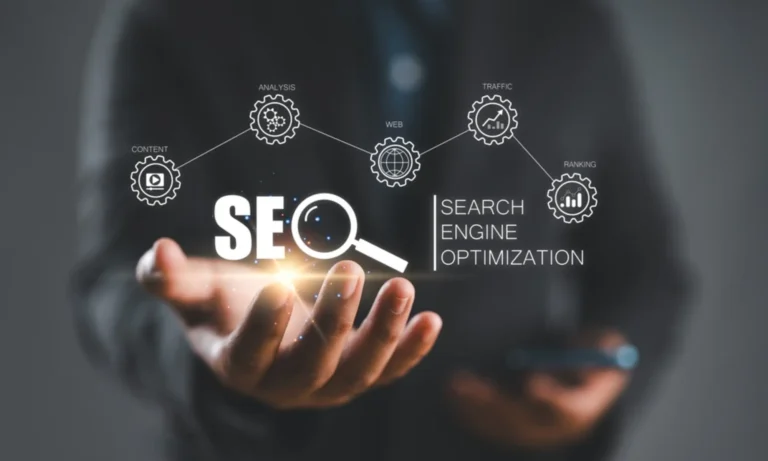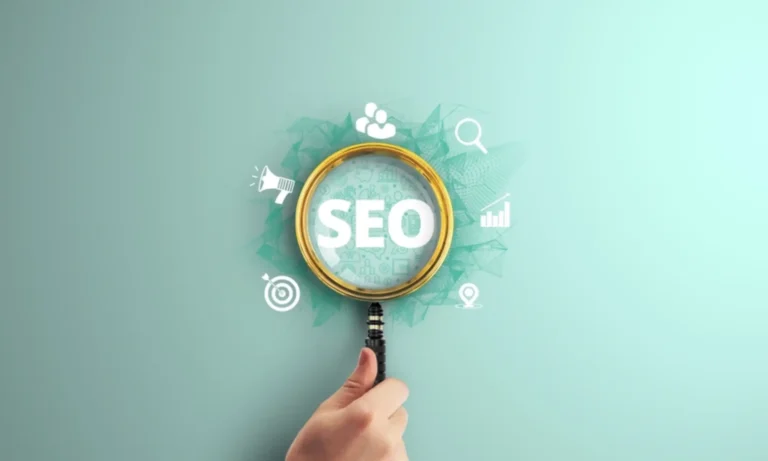What Elements Are Foundational For SEO With Ai?

Artificial Intelligence (AI) is rapidly transforming the way we approach search engine optimization (SEO), enabling businesses to optimize their strategies with greater precision and efficiency. By leveraging AI, SEO professionals can analyze data more effectively, predict trends, and deliver personalized experiences that align with both user intent and search engine algorithms. In this article, we’ll dive into the foundational elements of SEO with AI, exploring how this powerful technology is reshaping keyword research, content optimization, technical SEO, and more to drive better results.
Foundational Elements for SEO with AI
As artificial intelligence (AI) continues to shape the digital landscape, its role in search engine optimization (SEO) has become increasingly important. Leveraging AI in SEO is not just a trend; it’s a vital strategy for staying competitive in the digital space. In this article, we’ll explore the key foundational elements for optimizing your SEO efforts using AI.
1. AI-Driven Keyword Research
Keyword research remains one of the cornerstones of SEO, but AI has transformed how it’s done. Traditional keyword tools rely on historical data, while AI can predict future trends and analyze search intent more effectively.
- Semantic search: AI enables you to understand the context behind keywords, helping you identify the true intent of the user rather than focusing on single words.
- Natural language processing (NLP): AI-based tools use NLP to discover variations of keywords and phrases users are searching for, giving a more comprehensive understanding of relevant keywords.
- Predictive analytics: AI tools predict which keywords might trend based on historical data and current user behavior, allowing SEO strategists to stay ahead of the competition.
2. Optimizing Content With AI
Content creation and optimization are integral to any SEO strategy. With AI, you can take your content efforts to the next level by making data-driven decisions and improving user engagement.
- AI content generation: AI tools like GPT models can help generate well-structured content based on predefined inputs, enabling the creation of blog posts, articles, and product descriptions that resonate with users.
- Content gap analysis: AI-powered tools can analyze competitor content and highlight gaps in your own strategy. This enables you to create content that fulfills unmet user needs, which is crucial for ranking higher in search results.
- User intent matching: AI can analyze the behavior and preferences of your target audience, helping you align your content with their search intent more accurately.
3. AI and Technical SEO
Technical SEO ensures that your website is easily crawlable and indexed by search engines. AI tools streamline this process by automating complex tasks and identifying optimization opportunities.
- Crawlability: AI algorithms can simulate how search engines crawl your site, identifying barriers like broken links or slow-loading pages. This makes technical auditing faster and more efficient.
- Site structure optimization: AI can automatically suggest improvements to your site’s structure, ensuring that it’s both user-friendly and easy for search engine bots to navigate.
- Schema markup: AI can recommend and automatically generate schema markup for your site, improving your chances of securing rich snippets and other search features.
4. AI-Powered SEO Tools for Analytics
Data analysis is the backbone of successful SEO strategies, and AI enables more in-depth insights into user behavior and website performance.
- Predictive analytics: AI can forecast SEO outcomes based on historical trends and current performance. This helps businesses focus on high-impact strategies and content that will yield the most significant ROI.
- User behavior insights: AI-powered analytics platforms can provide a deeper understanding of user behavior, from how they navigate your site to which elements capture their attention. This allows for more precise on-page optimizations.
- SEO audits: AI tools can run full-site audits that analyze technical performance, keyword optimization, and content effectiveness in a fraction of the time it would take manually.
5. AI and Voice Search Optimization
The rise of voice search is a game-changer in SEO, and AI is critical for optimizing websites to meet this growing demand.
- Long-tail keyword optimization: AI tools can identify long-tail, conversational keywords that are increasingly used in voice search. Optimizing for these phrases increases the chances of your content appearing in voice search results.
- Natural language queries: AI helps SEO professionals optimize content for natural language queries, ensuring your website aligns with the way users speak, not just type.
- Answer box optimization: AI tools can analyze the structure of featured snippets, enabling you to format your content more effectively for voice searches.
6. AI and Link Building
Link building continues to be a crucial aspect of SEO, and AI can streamline and enhance this process.
- Link analysis: AI can analyze link-building opportunities by evaluating the quality and relevance of potential links. It can also identify spammy or low-quality backlinks that could harm your ranking.
- Automated outreach: AI tools can automate the process of reaching out to relevant websites, bloggers, and influencers for backlinks. This saves time and ensures more personalized and targeted outreach efforts.
- Competitor link analysis: AI can assess your competitors’ backlink profiles, helping you uncover strategies to replicate their success and improve your own link-building efforts.
7. AI and Local SEO
For businesses with a local presence, AI offers valuable tools for improving local SEO.
- Automated local listing management: AI tools can help maintain up-to-date information across multiple local directories and platforms like Google My Business, ensuring your business appears in local search results.
- Review and reputation management: AI-powered tools can monitor reviews and customer feedback in real time, enabling quick responses and boosting your local SEO efforts.
- Geo-specific keyword optimization: AI can identify and optimize for location-based keywords that are crucial for ranking in local searches.
8. AI and Personalization in SEO
Search engines, especially Google, are increasingly focusing on delivering personalized results. AI can help tailor content and SEO strategies to individual users.
- Personalized content recommendations: AI can analyze user behavior and recommend personalized content that improves engagement, thereby boosting time spent on your site, reducing bounce rates, and improving SEO rankings.
- Dynamic SEO adjustments: AI tools can adjust your SEO strategy dynamically based on user interactions. For example, if a particular page is underperforming, AI can suggest real-time adjustments to improve performance.
- Audience segmentation: AI can segment your audience more effectively, allowing you to deliver customized SEO strategies to different user groups based on their behaviors and preferences.
9. AI for Mobile SEO
As mobile search continues to grow, optimizing for mobile has never been more important. AI tools can ensure that your website delivers the best possible mobile experience.
- Mobile-first indexing optimization: AI helps optimize websites for Google’s mobile-first indexing, ensuring that your mobile site is just as optimized as the desktop version.
- Mobile page speed improvements: AI can identify areas where mobile page speed is lacking and offer specific recommendations for optimization, helping to reduce bounce rates and improve user engagement.
- Responsive design insights: AI can suggest design changes that make your site more responsive across different devices and screen sizes, ensuring a seamless mobile experience.
Conclusion
AI has revolutionized SEO by making processes more efficient, insightful, and predictive. From keyword research and content optimization to technical SEO and mobile-first strategies, AI-driven tools and techniques are now essential for staying ahead in the digital landscape. By leveraging AI in your SEO strategy, you can optimize for both search engines and users, ensuring long-term success in the ever-evolving world of search.
This structure covers essential aspects of SEO in combination with AI, organized in a user-friendly and informative way.





